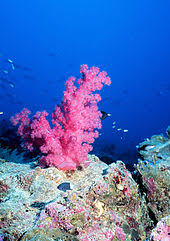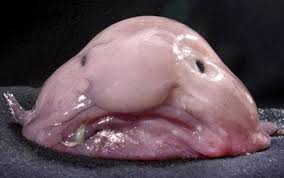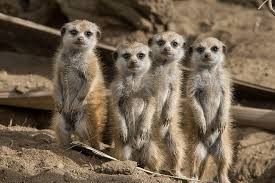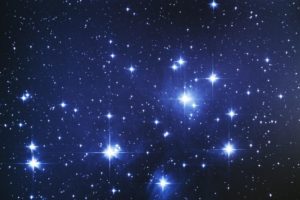
Sophia Hanson
A psi-fi-qualified article recently appeared in the online Journal of Consciousness Exploration & Research, called “The Evolution of Consciousness” by Guy Immega. (http://jcer.com/index.php/jcj/article/view/714/752). It stimulates some good psi-fi story ideas.
In a list of first principles, the author proposed above all, that “Consciousness (awareness) is a characteristic of all living things.”
That’s a view I happen to share. It is a kind of conscious vitalism. A corollary is that panpsychism is wrong. That’s the view that everything is conscious in some way. Immega’s principle says that only alive things are conscious and that’s what I think, too. When I write psi-fi stories, I walk that knife-edge between alive and not-alive.
Logically, Immega’s principle only says that SOME alive things are conscious, which is hardly arguable, since you and I are alive and we are conscious. So, yes, that’s true.
He implies but does not declare that ALL alive things are conscious, though the essay proceeds as if that were true, considering everything from bacteria to monkeys.
Nor does his principle say that inanimate things cannot be conscious though his essay suggests that. Basically, his first principle is not strong enough to support the arguments of his essay.

I propose a stronger principle: Only alive things can be conscious, AND, all alive things are indeed conscious.
By conscious, I mean that a thing has an intrinsic subjectivity of a self-relating nature, which I can define later. I don’t mean that all living things are capable of abstract thought, language, and self-reflection. Only that they are conscious in some way, to be defined.
Who’s included in the alive club? Animals, plants, protozoa, bacteria, dung-beetles, and humans. And they’re all conscious because all living things are conscious.
What’s excluded? Tentatively, stones, mountains, rivers, circuit boards, planets, quarks, ball-bearings, and corpses. All the non-living things. By definition, no ghost could be conscious.
However, there is a problem. Defining what’s alive is not so easy. Is the double helix alive? Are zygotes alive? Viruses? Electrons? Body products? Truth be told, I even have serious questions about fire.
The critical focus for psi-fi is AI androids. Could there be a genuinely intelligent android, a manufactured device that was really alive? According my principle, an android could not be genuinely conscious unless it was alive. No computer can be conscious unless it is alive. Take that, Alan Turing.
 I call my proposition “vital-psychism,” to contrast it to panpsychism. I am not trying to resurrect Bergson’s “elan vital” of the early twentieth century. I don’t believe in a magical vital force that makes things be alive. I only mean that “alive” is a prerequisite for consciousness. Can a computer, a manufactured thing, be alive? As Hamlet said, “That is the question.”
I call my proposition “vital-psychism,” to contrast it to panpsychism. I am not trying to resurrect Bergson’s “elan vital” of the early twentieth century. I don’t believe in a magical vital force that makes things be alive. I only mean that “alive” is a prerequisite for consciousness. Can a computer, a manufactured thing, be alive? As Hamlet said, “That is the question.”
In this post I want to consider only one idea: vital-psychism. Alive things are conscious, and conscious things must be alive.
I haven’t yet defined consciousness, but I should at least say I mean “genuine” consciousness, of the kind you and I experience, the subjective kind. I don’t mean attributed consciousness, in the style of Dan Dennett, who says, essentially, if it quacks like a duck, it’s probably conscious. People attribute consciousness to all sorts of objects, from autonomous missiles to children’s toys. That’s not what I mean. I mean the real juice.
Defining life comes first however, and that’s what this post is about. I must define life before I can proceed with the vital-psychist hypothesis.
So what is life? I don’t know.
At a recent conference on consciousness, one speaker went to great lengths, with great micrographs, to show progress toward creating artificial life from inert chemicals. (Life, intelligence and our new technologies. Steen Rasmussen, Sante Fe Institute; Center for Fundamental Living Technology (FLinT) University, Santa Fe, NM https://eagle.sbs.arizona.edu/sc/report_poster_detail.php?abs=3584 )
 He was focused on creating a cellular structure with a nucleus that would reproduce by something like mitosis. He had a synthesized polymeric crystal in the “nucleus” that encoded bits of information and which could auto-replicate upon cell division. He seemed especially proud of his lipid membranes. It was impressive, though not “yet” successful, but, crucially, he did not explicitly define life, other than to say his artificial cell needed metabolism and “information-processing.”
He was focused on creating a cellular structure with a nucleus that would reproduce by something like mitosis. He had a synthesized polymeric crystal in the “nucleus” that encoded bits of information and which could auto-replicate upon cell division. He seemed especially proud of his lipid membranes. It was impressive, though not “yet” successful, but, crucially, he did not explicitly define life, other than to say his artificial cell needed metabolism and “information-processing.”
Life was simpler in Aristotle’s day. He defined life as animation. If a thing moves itself, it is alive. That’s not bad, and that definition lasted for a thousand years until the advent of self-motivating machines like the locomotive.
Today, three groups of definitions of life can be found. One tries to distinguish the quick and the dead with some supernatural ghost in the machine, some spirit, or vital principle. As a naturalist, I am not interested in such definitions and leave others to argue their merits.
A second group of definitions defines life as that which is living. These tautological definitions typically include requirements such as “must have cells that metabolize,” “must be subject to evolution by natural selection,” “must have DNA,” and so forth. Such definitions might as well say “life is what biologists study.” They are not helpful definitions for a psi-fi writer.
A third group of definitions tries to define life from general principles not constrained by biology. For example, one definition is that life is any process that acts, reacts, consumes energy, replicates, metabolizes, is homeostatic, and evolves.
That’s a start but it’s not great. What “evolves” means in that context is anybody’s guess. I’d substitute “grows,” which is a easier to define.
A requirement for “metabolism” stuffs the rabbit into the hat before the show. It seems to require that to be a living thing, it must be a living thing. But we can interpret “metabolism” more broadly to be redundant with “consumes energy.”
Likewise, “homeostasis” is a biologically biased term but we could substitute “self-regulates,” which would qualify the Watt flyball governor used on early steam engines.
“Consumes energy” seems inert because of entropy. Everything consumes energy. What’s interesting about life forms is that within a domain, they can be seen as anti-entropic. They create things. They produce structure and information in the world where none was before, such as a spider’s web, a termite nest, a woven blanket, a number line, and an android.
Perhaps the creative, anti-entropic aspect of life is already embedded in the term, “growth,” but I’d like to call it out separately, so I would add another term, “produces patterns other than self-replication.”
A modified list of requirements that could be useful start for a psi-fi writer, then, is:
 Life is any process that acts, reacts to stimulation, consumes energy, produces new patterns, replicates, self-regulates, and grows.
Life is any process that acts, reacts to stimulation, consumes energy, produces new patterns, replicates, self-regulates, and grows.
To satisfy the condition of vital-psychism, I must add to this list, “has subjectivity,” because according to the principle of vital-psychism, all alive things are conscious, and I said that the defining characteristic of consciousness is subjectivity.
It’s going to be difficult to verify the presence of subjectivity in a process, but confirmation is a separate problem to be solved. This is just about defining the parameters of aliveness for the vital-psychist agenda.
Unfortunately, with this working definition, I still have questions about fire. It grows, reproduces, responds to its environment, consumes energy, and all the rest. Is fire alive? Does it have a subjectivity? I doubt it, but confirmation is difficult.
If fire is alive, then I have questions about rivers.
And that’s a slippery slope to the gaia hypothesis, which, depending on how you read it, suggests that the entire planet and everything on it is alive, and we’re back to panpsychism.
 Mountains could be alive. They just grow, reproduce, and die at a rate much slower than we readily recognize. But if they qualify for the club of the living, then by the principle of vital-psychism, mountains are conscious, in their own way, of course. I don’t like that conclusion, but there it is.
Mountains could be alive. They just grow, reproduce, and die at a rate much slower than we readily recognize. But if they qualify for the club of the living, then by the principle of vital-psychism, mountains are conscious, in their own way, of course. I don’t like that conclusion, but there it is.
And then we have to ask if stars are alive. They’re born, they grow, they die. They satisfy most of the criteria for aliveness. Do they have subjectivity? Are the stars conscious? What are they thinking about? Plenty of psi-fi story possibilities there.